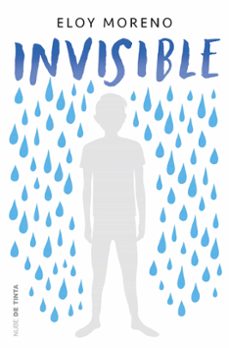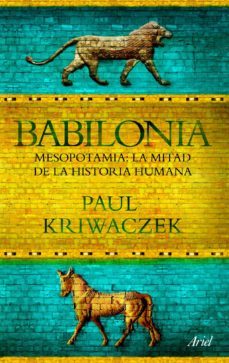Imprescindibles
Ficción
Literatura ContemporáneaEstudios literariosClásicosCuentosPoesíaTeatroLibros de bolsillo Sagas literarias
Géneros literarios Novela romántica y eróticaNovela negraNovela históricaNarrativa fantásticaNovela de ciencia ficciónNovela de terrorNarrativa de humorNarrativa de viajes
No Ficción
Ciencias y tecnología BiologíaCienciasCiencias naturalesDivulgación científicaInformáticaIngenieríaMatemáticasMedicinaSalud y dietas Formación Idiomas Estilo de vida Libros de CocinaGuías de viajeNarrativa de viajesDeportesLibros de JuegosManualidades
Humanidades Autoayuda y espiritualidadCiencias humanasDerechoEconomía y EmpresaPsicología y PedagogíaFilosofíaSociología Filología BiblioteconomíaEstudios filológicosEstudios lingüísticosEstudios literariosHistoria y crítica de la Literatura
Infantil
Juvenil
Cómic y Manga
Novela gráfica Novela gráfica americanaNovela gráfica europeaNovela gráfica de otros países Personajes, series y sagas Series y sagasStar Wars Superhéroes Cómics DCCómics MarvelCómics otros superhéroesCómics Valiant
eBooks
Literatura ContemporáneaNarrativa fantásticaNovela de ciencia ficciónNovela de terrorNovela históricaNovela negraNovela romántica y erótica Juvenil Más de 13 añosMás de 15 años Infantil eBooks infantiles
Humanidades Autoayuda y espiritualidadCiencias humanasEconomía y EmpresaPsicología y PedagogíaFilosofía Historia Historia de EspañaHistoria Universal Arte CineMúsicaHistoria del arte
Ciencia y tecnología Ciencias naturalesDivulgación científicaMedicinaSalud y dietas Filología Estudios lingüísticosEstudios literariosHistoria y crítica de la Literatura Estilo de vida CocinaGuías de viajeOcio y deportes
Paul Kriwaczek
Paul Kriwaczek nació en Viena en 1937. Ha sido escritor, productor y director de la BBC durante veinticinco años y delegado de Central Asia Affairs en el servicio internacional de la BBC. Habla ocho lenguas incluyendo farsi, pashto, urdu, hindi y nepalí.
Recibe novedades de PAUL KRIWACZEK directamente en tu email
Filtros
Del 1 al 3 de 3
Atlantic Books 9781782395676
In Babylon, Paul Kriwaczek tells the story of ancient Mesopotamia from the earliest settlements around 5400 BC, to the eclipse of Babylon by the Persians in the sixth century BC. He chronicles the rise and fall of dynastic power during this period; he examines its numerous material, social and cultural innovations and inventions: The wheel, civil, engineering, building bricks, the centralized state, the division of labour, organised religion, sculpture, education, mathematics, law and monumental building. At the heart of Kriwaczeks magisterial account, though, is the glory of Babylon - gateway to the gods - which rose to glorious prominence under the Amorite king Hammurabi, who unified Babylonia between 1800 and 1750 BC. While Babylonian power would rise and fall over the ensuing centuries, it retained its importance as a cultural, religious and political centre until its fall to Cyrus the Great of Persia in 539 BC.
Ver más
eBook
PHOENIX PRESS 9781842126554
IN SEARCH OF ZARATHUSTRA is a quest to trace the influence of the prophet the Greeks called Zoroaster and considered the greatest religious legislator of the ancient world. Long before the first Hebrew temple, the birth of Christ or the mission of Muhammad, Zarathustra had taught of a single universal god, of the battle between Good and Evil, of the Devil, Heaven and Hell, and of an eventual end to the world. Over several decades, Paul Kriwaczek, an award-winning television producer, has cast his eye across Europe and Central Asia, from Hadrian''s Wall to the Oxus river, from the Pyrenees to the Hindu Kush. Passing via Nietzsche''s interpretation of Zarathustra for a post-religious age, the Cathars of 13th-century France, the Bulgars of 9th-century Balkans, and the prophet Mani''s revision of Zarathustra''s message in the later Persian empire, Paul Kriwaczek then explores the religion of Mithras - before going back past Alexander the Great''s destruction of the Persian Empire, and the era of the great Persian kings Cyrus and Darius in the 6th century BC, to the beginning of the first pre-Christian millennium.
Ver más
Tapa blanda
Editorial Ariel 9788434413665
Un recorrido fascinante por los albores de la civilización, un viaje de ocho mil años en el que asistimos al florecimiento y caída de una sociedad cuyo desarrollo tecnológico y social ha marcado el devenir de Oriente y OccidenteEn el VI milenio aC, los habitantes de las riberas del Tigris y el Eufrates crearon las primeras ciudades del mundo. Con ello escribian el primer capitulo de la civilizacion humana tal como la conocemos hoy.Paul Kriwaczek narra la extraordinaria historia de la antigua Mesopotamia, desde los primeros asentamientos alrededor del 5400 aC hasta el dominio de Babilonia por los persas en el siglo VI sC. Relata el ascenso y caida del poder dinastico y examina sus numerosas innovaciones materiales, culturales, sociales y sus inventos: la rueda, el ladrillo, el estado centralizado, la division del trabajo, la religion organizada, la escultura, la educacion, las matematicas, la ley y los grandes monumentos. En el corazon del relato esta la gloria de Babiloniaopuerta de los dioses- bajo el rey amorita Hammurabi, quien unifico Babilonia entre el 1800 y el 1750 aC.
Ver más
Tapa blanda
Del 1 al 3 de 3































